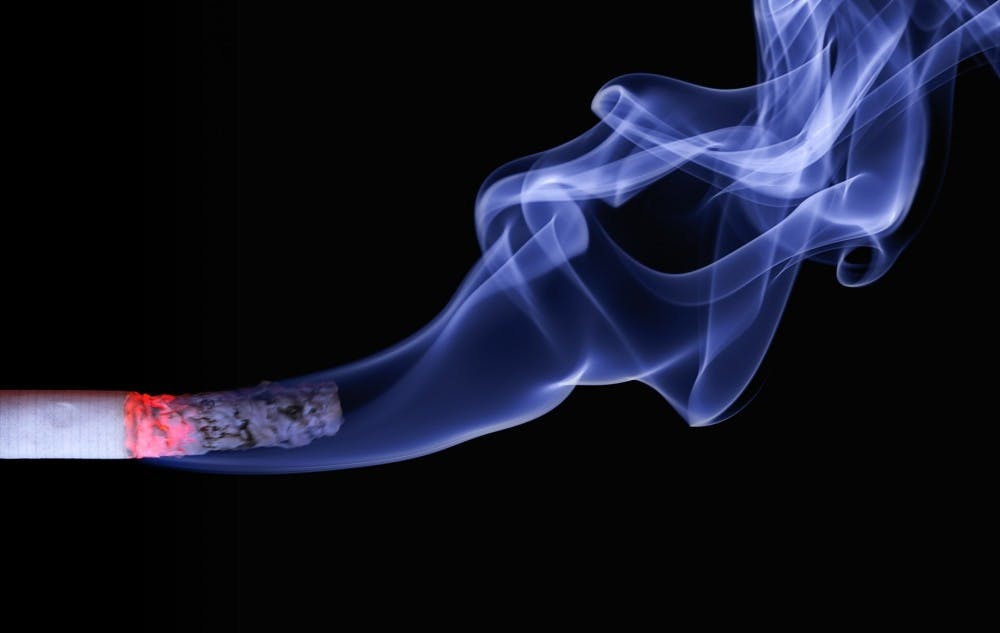New Jersey could become the first state to outlaw the sale of menthol cigarettes. Democratic Assemblyman Herb Conaway ’85, a physician and chairman of the Assembly Health and Senior Services Committee, is sponsoring a bill that would add menthol-flavored cigarettes to New Jersey’s list of prohibited flavored cigarettes.
Menthol, which has cooling, desensitizing, and pro-analgesic effects, is attractive to young first-time smokers, putting them at risk of adverse health effects and addiction, according to the bill. The bill also mentions that women, communities with lower socioeconomic status, and African-American communities are disproportionately affected.
Menthol cigarettes marketing has heavily targeted black communities. Nearly 80 percent of black smokers prefer menthol cigarettes, compared to 21 percent of white smokers, and black men and women are more likely to die of lung cancer.
In 2009, the U.S. Food and Drug Administration, concerned for the health of young people, prohibited tobacco companies from selling other flavored cigarettes and required new warning labels about the health risks associated with products that are particularly alluring to youth. Menthol cigarettes, also popular among youth, was not included in the ban.
A survey by the Harvard School of Public Health found that a third of college students smoke tobacco products at least once a month. The University, in line with state law, prohibits smoking in all University buildings and outdoor spaces within 25 feet of all those buildings.
The executive director of University Health Services, John Kolligian, did not immediately respond to a request for comment.
Menthol’s cooling effect allows smokers to draw more toxic substances into their lungs and hold them there, according to Conaway, who thinks the federal government ought to have included menthol cigarettes in the 2009 bill. In addition to adding menthol cigarettes to state’s list of prohibited cigarettes, the bill will add clove cigarettes, which are made with a blend of tobacco, cloves, and other flavors and were part of the 2009 federal ban.
“Science supports the fact that [menthol] promotes cancer,” he said. “That’s why the other flavors and cooling agents have been removed.”
Conaway did not respond to immediate request for comment.
“Tobacco use remains the leading cause of preventable death,” said Brian Shott, the New Jersey government relations director for the American Cancer Society Cancer Action Network. “ACS CAN supports efforts to reduce tobacco use and the availability of these deadly products.”
ACS CAN, a leading cancer advocacy organization, does not currently have a position on the bill but plans to work with the sponsor and other members of the legislature as it continues to review the legislation and determine its potential impact, according to Shott.
There are concerns that the ban would result in financial losses for convenience stores and small businesses that sell menthol cigarettes, which account for 35 percent to 40 percent of their total sales, not accounting for the ancillary sales such as snacks and coffee that the stores will lose, according to The New Jersey Food Council, a nonprofit alliance of food retailers and their supplier partners.

"This revenue loss means there is less money for investment in jobs and communities throughout New Jersey," said Mary Ellen Peppard, Assistant Vice President of Government Affairs for the New Jersey Food Council, adding that a black market will likely emerge as a result of the ban.
As a result of decreased profits, the state stands to lose tax revenue. Roughly $750 million in tax revenue is generated from tobacco sales each year.
The bill was approved Monday by the New Jersey Assembly's Health and Senior Services Committee by a vote of 7–3 with three abstentions. Now it heads to the Appropriations Committee for further consideration.








